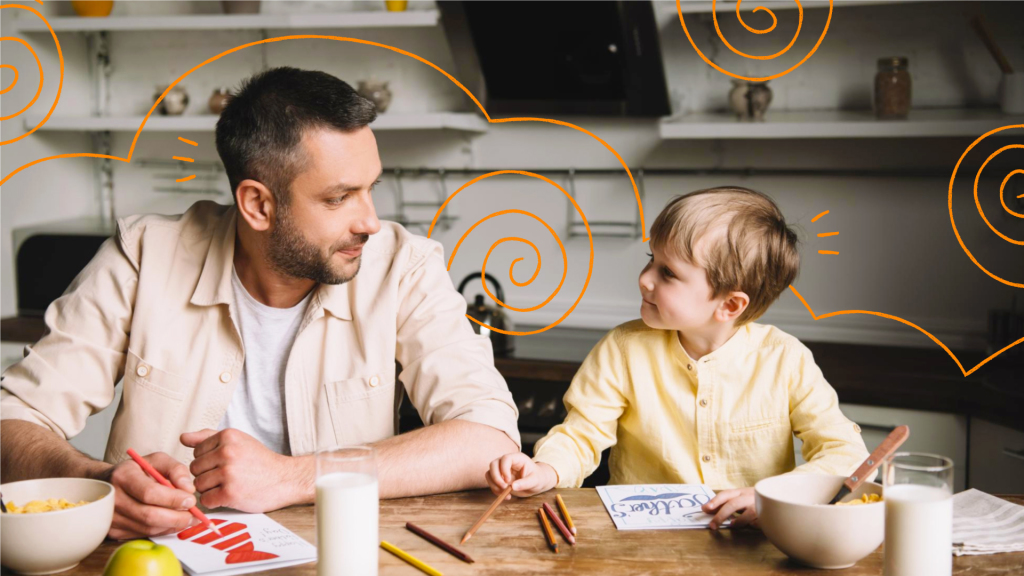
- 3 mins
5 Things to Teach Kids about Big Feelings

Big feelings happen. Being prepared to handle your child’s emotions will help them learn self-regulation techniques and teach them big feelings are something we all experience!
Regardless of the specifics of their feelings, try to approach your child with the following thoughts in mind. Provide space for your child to learn how to express themselves and develop their social-emotional skills.
“I can see it in your face *mirrors face*. You’re feeling so hungry right now and it can be so hard to wait for your food to cool down. You want to eat it right away. But it is hot. Perhaps while we wait we could sing a song?”
For an infant: “Wow, wasn’t that a loud sound! What a surprise. I am here with you. You are safe.”
For a toddler: “That was an ambulance. They are making loud noises to let everyone know that they need to get somewhere very fast to help keep someone safe.”
“I can see that you are upset that Mommy has to go. It can be hard to say goodbye to the people we love. Mommy will be back as soon as you wake up from your nap.”
“I know, you really don’t want to go back into the stroller right now! It won’t be for long. How about we think about all the fun things we can do together once we get home. Would you like to think of the first thing?”
“You really want that toy that your brother has. It can be hard to let him play with something that means so much to you. It is his turn right now, when he is finished, you can have a turn. Mommy can help you wait or we can find something else to do in the meantime.”
“It’s okay to feel nervous, I do sometimes too. I am here with you, you are safe with me. I wonder what may help? Perhaps let’s draw this worry together, I wonder how big it is for you. Know that you can always talk to me, I am always here.”
“I can see it makes you feel a little nervous when you are around new people. Sometimes I feel that way too. I wonder how you could feel better about saying hello to the group of girls at school. Perhaps we could practice together the things you could say?”
“How would you like to say hello? Would you like to wave or high-five to say hello?”
“It’s okay to not understand. Sometimes it can be tricky to get our heads around it all. Let’s take it slow and try to understand it together.”
“It sounds like that really made you feel uneasy. Would you like to talk about it together?”
Sharing your own embarrassing story can help and praise moments of bravery and positive coping skills.